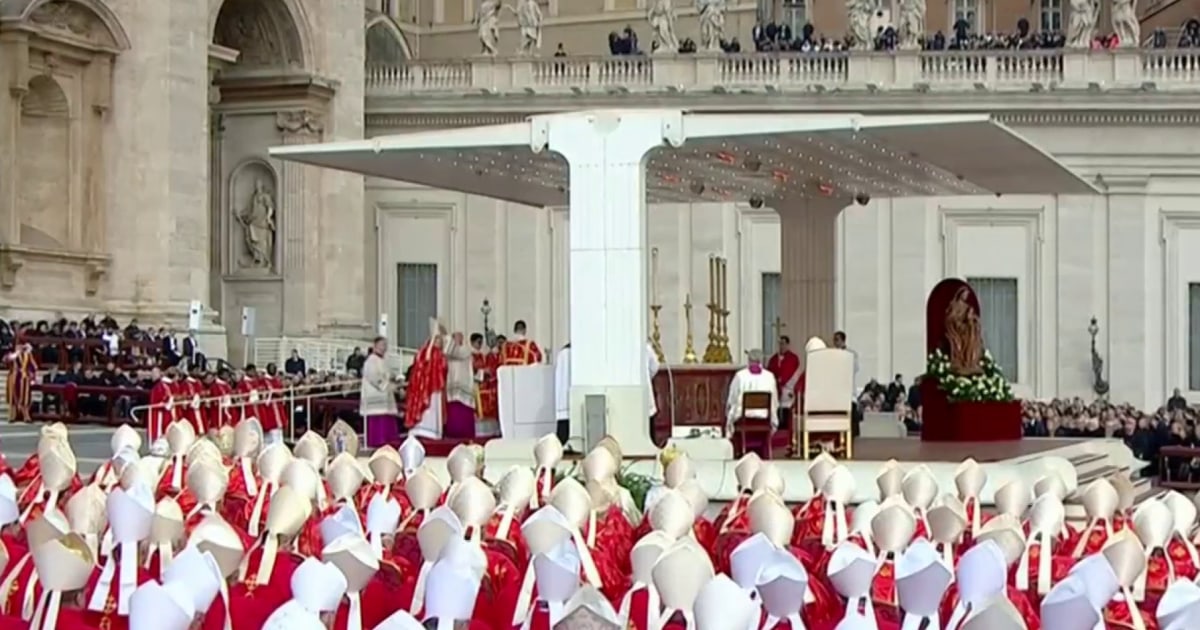Rent Increase Slowdown In Metro Vancouver: A Look At The Housing Market

Table of Contents
Factors Contributing to the Rent Increase Slowdown in Metro Vancouver
Several interconnected factors have contributed to the recent deceleration in rent increases in Metro Vancouver. Understanding these factors is crucial for navigating the evolving rental landscape.
Increased Housing Supply
New construction projects, both rental and ownership, are playing a significant role in easing rental pressures. Increased supply helps to balance market demand, ultimately impacting rental rates.
- Examples of new developments: Several large-scale rental developments have recently been completed or are nearing completion in various Metro Vancouver neighborhoods, including Surrey, Burnaby, and Vancouver's False Creek area.
- Government initiatives promoting construction: Provincial and municipal governments have implemented initiatives aimed at increasing housing density and incentivizing the construction of rental units. These include zoning changes, expedited permitting processes, and financial incentives for developers.
- Impact of increased supply on market equilibrium: The increased housing supply is starting to shift the balance of power in the rental market, giving renters more options and potentially leading to less aggressive rent increases.
Economic Slowdown and Interest Rate Hikes
The current economic climate significantly impacts rental demand and affordability. Rising interest rates have a ripple effect throughout the housing market.
- Impact of rising interest rates on mortgage affordability: Higher interest rates make mortgages more expensive, reducing the number of people able to purchase homes. This, in turn, can lessen the pressure on the rental market as fewer people are competing for rental units.
- Decreased purchasing power: Inflation and rising interest rates have decreased the purchasing power of many individuals, impacting their ability to afford higher rents.
- Reduced tenant demand: A combination of economic uncertainty and higher borrowing costs has led to a slight decrease in tenant demand in some areas of Metro Vancouver.
Government Regulations and Policies
Government regulations and policies, particularly rent control measures, play a role in shaping rental costs.
- Specific examples of rent control policies in Metro Vancouver: British Columbia has implemented rent control measures aimed at limiting annual rent increases for existing tenants. These policies can help to stabilize rental costs and prevent excessive hikes.
- Their effectiveness: The effectiveness of rent control policies is a subject of ongoing debate, with proponents highlighting their role in protecting tenants and opponents arguing they can stifle new construction and investment.
- Potential unintended consequences: While rent control aims to protect tenants, some argue it can lead to a decrease in the availability of rental units as landlords may be less inclined to invest in maintenance or new construction.
Changing Demographics and Migration Patterns
Shifts in population movement and housing preferences also influence rental demand.
- Net migration changes: While Metro Vancouver continues to attract new residents, the rate of migration has slowed in recent years compared to previous periods of rapid growth.
- Impact of remote work on housing preferences: The rise of remote work has altered housing preferences for some individuals, with some choosing to live further from city centers or opting for larger spaces outside of traditional urban areas.
- Changes in household size: Changes in household size and family structures can influence the overall demand for rental units.
Current Market Conditions in Metro Vancouver's Rental Sector
Understanding the current market conditions is essential for navigating the rental process.
Average Rent Prices
Average rental costs vary significantly across different property types and neighborhoods in Metro Vancouver. Data from sources like the Canada Mortgage and Housing Corporation (CMHC) and rental market reports provide valuable insights.
- Specific average rent figures with sources: [Insert current average rent data for various property types and neighborhoods, citing sources].
- Rental price trends by neighborhood: [Discuss regional variations in rental costs, highlighting areas experiencing faster or slower growth].
- Comparison with other major Canadian cities: [Compare Metro Vancouver's rental costs to other major Canadian cities to provide context].
Vacancy Rates
Vacancy rates are a key indicator of market competition and affordability. Higher vacancy rates generally indicate a more favorable environment for renters.
- Current vacancy rates with sources: [Insert current vacancy rate data with sources, ideally broken down by region].
- Analysis of regional variations: [Discuss variations in vacancy rates across different areas of Metro Vancouver].
- Relationship between vacancy rates and rental prices: Higher vacancy rates often correlate with slower rent increases or even rent decreases.
Rental Market Competition
The level of competition renters face varies depending on location, property type, and timing.
- Anecdotal evidence: [Include examples from recent experiences in the rental market].
- Statistics on application numbers: [If available, cite data on the average number of applications received for rental units].
- Time to secure a rental unit: [Discuss the average time it takes renters to find and secure a suitable unit].
Future Outlook for Renters in Metro Vancouver
Predicting future rent trends requires considering various factors.
Predicting Future Rent Trends
Several factors will influence rental costs in the coming years.
- Predictions for future supply: Continued construction of new rental units is expected to influence the overall supply and potentially moderate rent increases.
- Economic forecast: The future economic outlook will play a significant role in shaping rental demand.
- Impact of potential policy changes: Future policy changes, such as adjustments to rent control regulations, could significantly impact rental costs.
Advice for Renters
Navigating Metro Vancouver's rental market requires strategy and awareness.
- Strategies for finding affordable rental units: Thorough research, using multiple online resources and considering less central locations can help in securing more affordable rentals.
- Negotiating rent: Understanding market conditions and being prepared to negotiate can help renters achieve a fair rental price.
- Understanding tenant rights: Familiarizing oneself with tenant rights and responsibilities is crucial for protecting oneself throughout the rental process.
Conclusion
The recent slowdown in rent increases in Metro Vancouver signifies a notable shift in the housing market. This change is attributed to a confluence of factors, including increased housing supply, economic slowdown, government regulations, and shifting demographics. Understanding these current market conditions—average rent prices, vacancy rates, and competition levels—is crucial for making informed decisions. Stay ahead of the curve in Metro Vancouver's dynamic rental market by regularly checking for updates on rent trends and utilizing available resources like CMHC reports and local real estate websites to secure your ideal rental property. Further research into specific neighborhoods and property types will help you find the best rental options to suit your needs and budget.

Featured Posts
-
 Musks X Debt Sale New Financials Reveal A Transforming Company
Apr 28, 2025
Musks X Debt Sale New Financials Reveal A Transforming Company
Apr 28, 2025 -
 Heads Of State Honor Pope Francis At Solemn Funeral Service
Apr 28, 2025
Heads Of State Honor Pope Francis At Solemn Funeral Service
Apr 28, 2025 -
 Revolutionizing Voice Assistant Development Open Ais New Tools
Apr 28, 2025
Revolutionizing Voice Assistant Development Open Ais New Tools
Apr 28, 2025 -
 Virginia Giuffres Passing Impact On Prince Andrew And Epstein Investigations
Apr 28, 2025
Virginia Giuffres Passing Impact On Prince Andrew And Epstein Investigations
Apr 28, 2025 -
 Updated Red Sox Lineup Casas Position Change And Outfielders Reinstatement
Apr 28, 2025
Updated Red Sox Lineup Casas Position Change And Outfielders Reinstatement
Apr 28, 2025
Latest Posts
-
 Red Soxs Shifting Lineup Impact Of Outfielders Return And Casas Lowered Spot
Apr 28, 2025
Red Soxs Shifting Lineup Impact Of Outfielders Return And Casas Lowered Spot
Apr 28, 2025 -
 Analysis Red Sox Lineup Changes Following Outfielders Return And Casas Demotion
Apr 28, 2025
Analysis Red Sox Lineup Changes Following Outfielders Return And Casas Demotion
Apr 28, 2025 -
 Updated Red Sox Lineup Casas Position Change And Outfielders Reinstatement
Apr 28, 2025
Updated Red Sox Lineup Casas Position Change And Outfielders Reinstatement
Apr 28, 2025 -
 Red Sox Lineup Outfielder Returns Casas Moves Down In The Order
Apr 28, 2025
Red Sox Lineup Outfielder Returns Casas Moves Down In The Order
Apr 28, 2025 -
 Triston Casas Continued Slide Red Sox Lineup Adjustment And Outfielders Return
Apr 28, 2025
Triston Casas Continued Slide Red Sox Lineup Adjustment And Outfielders Return
Apr 28, 2025
